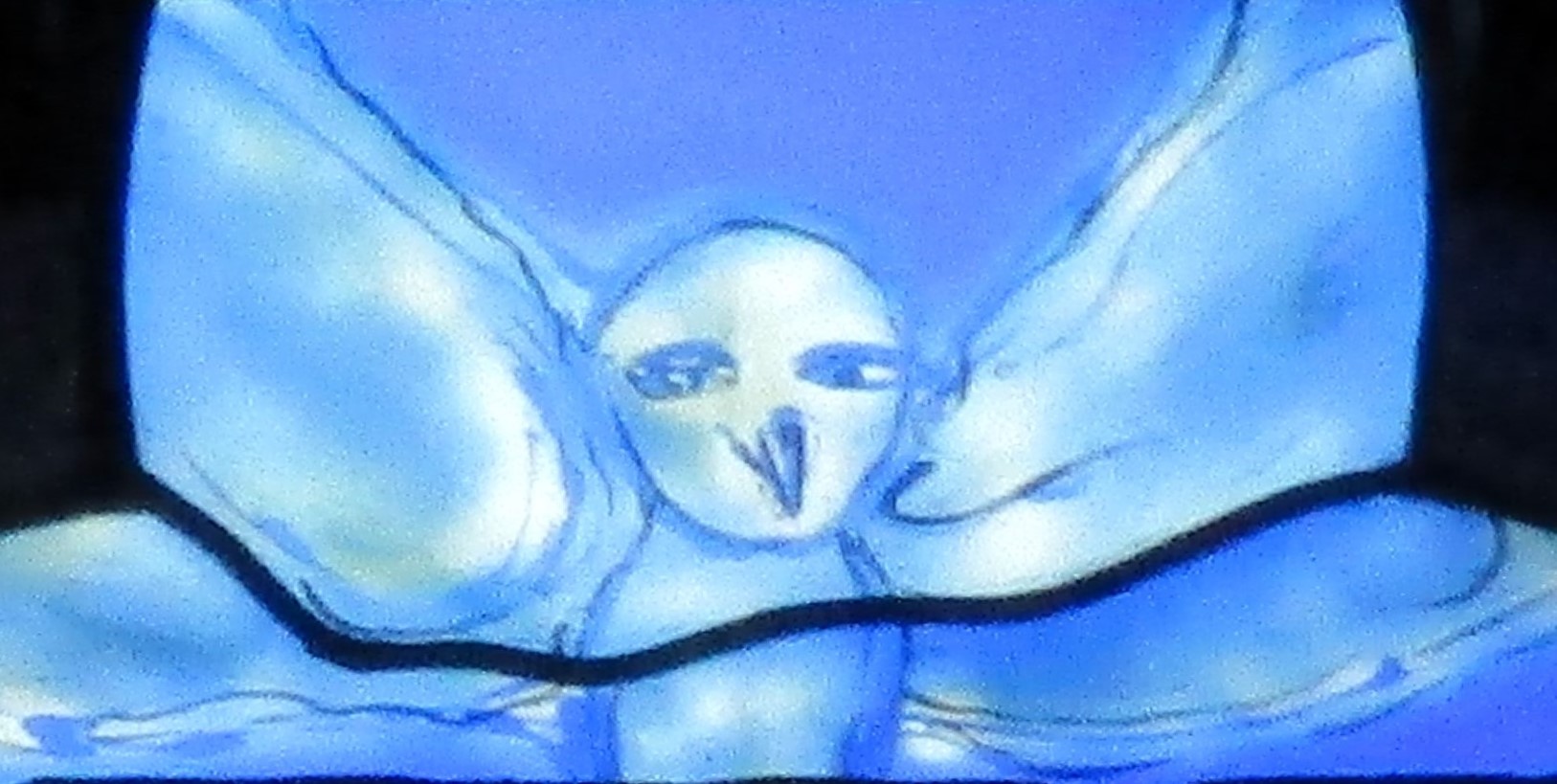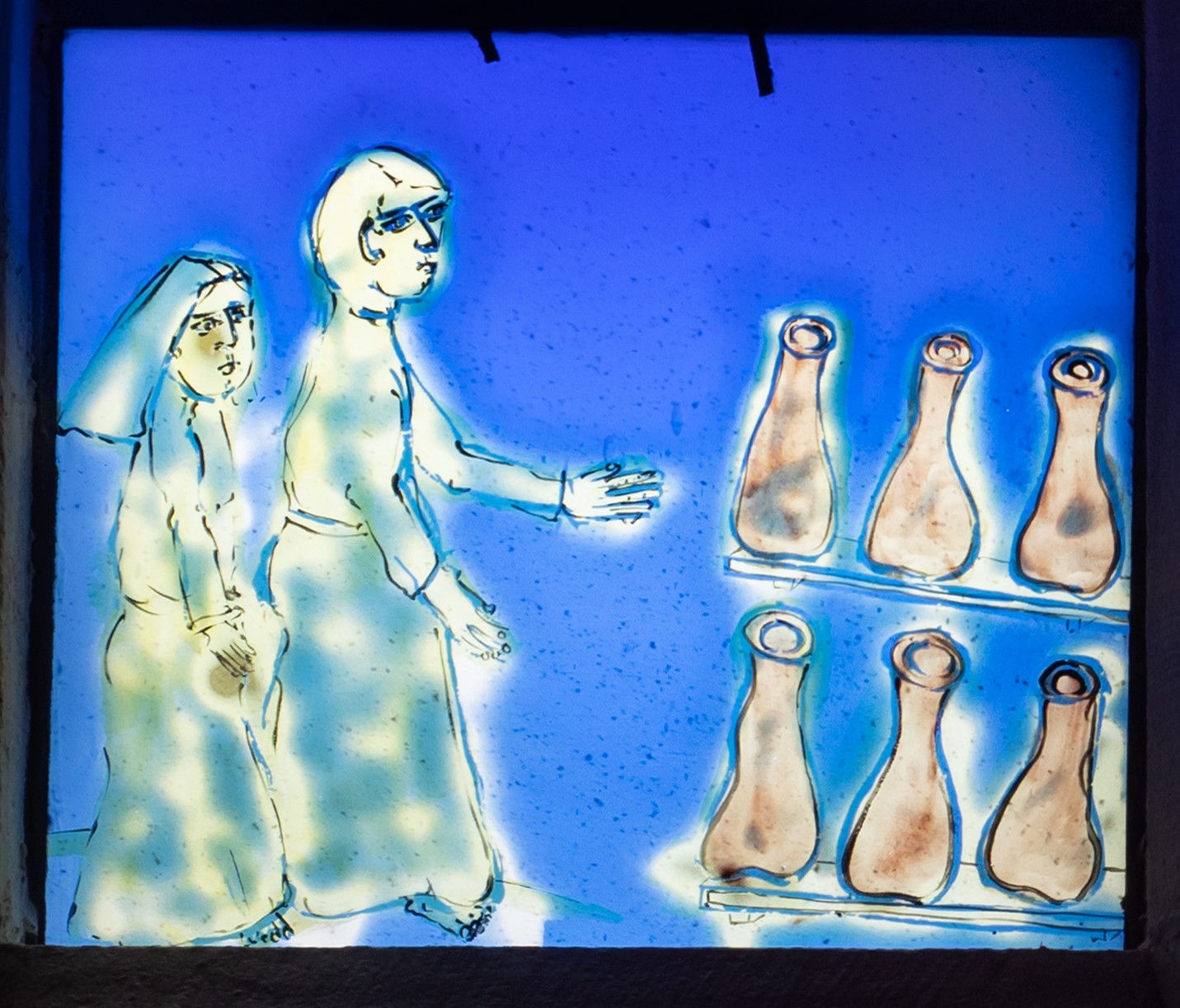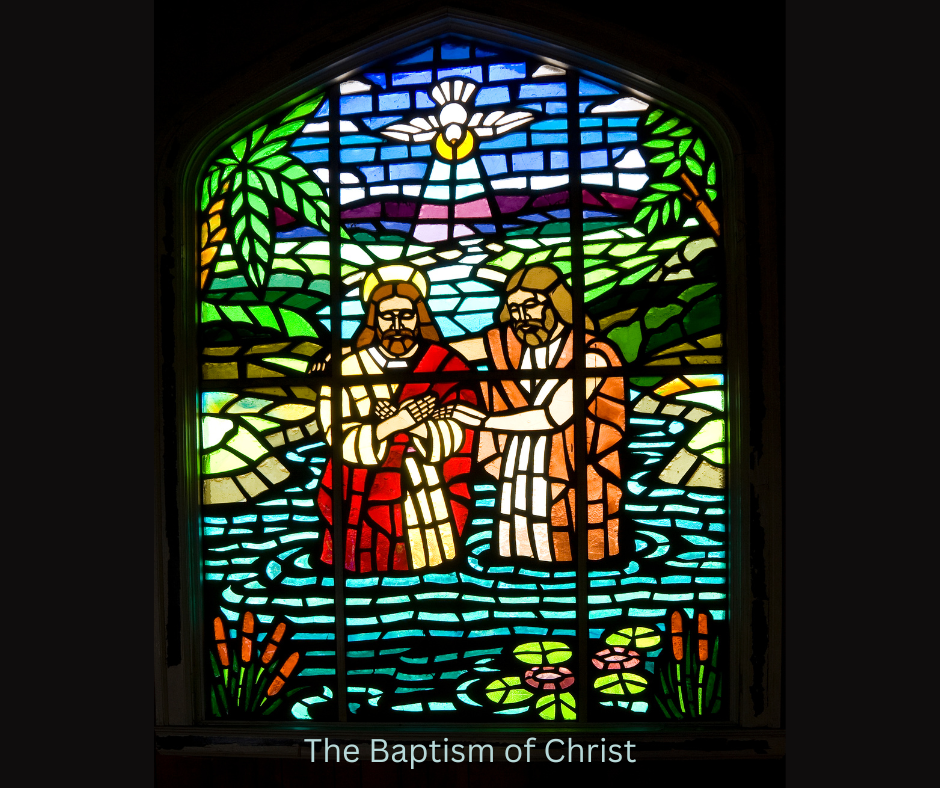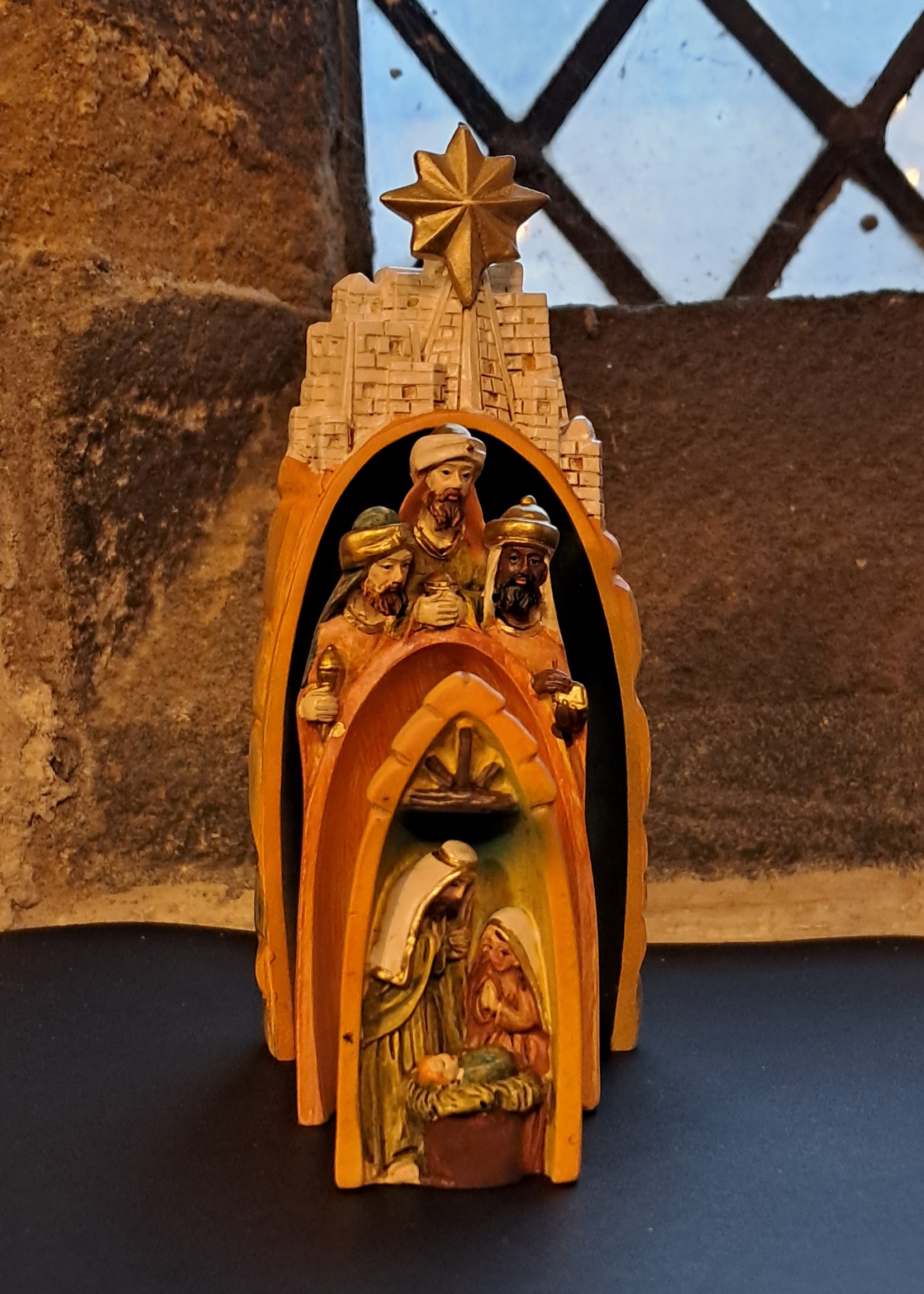
Watch this week's service on YouTube
Download the order of service here:25 01 26 Third Sunday of Epiphany Eucharist
Read this week's Church News
The Readings
Nehemiah 8.1-3, 5-6, 8-10
All the people gathered together into the square before the Water Gate. They told the scribe Ezra to bring the book of the law of Moses, which the Lord had given to Israel. Accordingly, the priest Ezra brought the law before the assembly, both men and women and all who could hear with understanding. This was on the first day of the seventh month. He read from it facing the square before the Water Gate from early morning until midday, in the presence of the men and the women and those who could understand; and the ears of all the people were attentive to the book of the law.
And Ezra opened the book in the sight of all the people, for he was standing above all the people; and when he opened it, all the people stood up. Then Ezra blessed the Lord, the great God, and all the people answered, ‘Amen, Amen’, lifting up their hands. Then they bowed their heads and worshipped the Lord with their faces to the ground.
So they read from the book, from the law of God, with interpretation. They gave the sense, so that the people understood the reading.
And Nehemiah, who was the governor, and Ezra the priest and scribe, and the Levites who taught the people said to all the people, ‘This day is holy to the Lord your God; do not mourn or weep.’ For all the people wept when they heard the words of the law. Then he said to them, ‘Go your way, eat the fat and drink sweet wine and send portions of them to those for whom nothing is prepared, for this day is holy to our Lord; and do not be grieved, for the joy of the Lord is your strength.’
Luke 4.14-21
Then Jesus, filled with the power of the Spirit, returned to Galilee, and a report about him spread through all the surrounding country. He began to teach in their synagogues and was praised by everyone.
When he came to Nazareth, where he had been brought up, he went to the synagogue on the sabbath day, as was his custom. He stood up to read, and the scroll of the prophet Isaiah was given to him. He unrolled the scroll and found the place where it was written:
‘The Spirit of the Lord is upon me,
because he has anointed me
to bring good news to the poor.
He has sent me to proclaim release to the captives
and recovery of sight to the blind,
to let the oppressed go free,
to proclaim the year of the Lord’s favour.’
And he rolled up the scroll, gave it back to the attendant, and sat down. The eyes of all in the synagogue were fixed on him. Then he began to say to them, ‘Today this scripture has been fulfilled in your hearing.’
Scripture quotations are from: New Revised Standard Version Bible: Anglicized Edition, copyright © 1989, 1995 National Council of the Churches of Christ in the United States of America. Used by permission. All rights reserved worldwide. http://nrsvbibles.org
The Sermon
Prepared by The Revd Canon Dr Alan Billings.
We have just heard how Jesus begins his life’s work, leaving behind the carpenter’s workshop.
Just before this, he’s been in the wilderness for forty days trying to understand what God wants of him, wrestling mentally with tempting but unworthy ideas about doing God’s work, and putting them firmly to one side.
Now, he marks the start of his three year ministry by going into his local synagogue on the sabbath day. He’s invited to read and preach.
He finds words of the prophet Isaiah which henceforth must guide him in all he does. “The Prophet says: the Spirit of the Lord is upon me, because he has anointed me to preach good news to the poor, release to the captives, recovery of sight of the blind and to set at liberty those who are oppressed.”
Good news to the poor, lifting the burdens of the oppressed.
As I thought about today’s gospel, I had the television on. It showed me someone else who was just beginning what he also sees as his God-given mission for the next four years. He too was beginning his work in a place of worship.
I mean, of course, the 47th president of the United States, Donald Trump.
If you watched any of the inauguration ceremonies, you may have been surprised by the amount of religion there was: church services and in the swearing in ceremony in the Capitol, the parliament. America is a religious country in a way we no longer are.
Also surprising, was that, traditionally, the two services were held in Anglican churches, which in America are called Episcopal, the main one being the national cathedral.
But most surprising of all was the sermon given by the Episcopal Bishop of Washington, Marrian Budde.
The election of this new president came after a bitter election campaign which has deeply divided America – Republicans and Democrats.
If there was to be unity, she said, it must be based on three foundations – respecting the dignity of all people; speaking truthfully; and being humble.
Then she spoke directly to the President, who was sitting a few feet in front of her. In effect, she was recalling how Jesus began his public ministry, shaping it on God’s priorities: good news for the poor, the lifting of burdens from the oppressed.
She exhorted the president, in the name of God, to have mercy on those who were fearful now of what he might do with his power. People like poor immigrants who toiled day and night to pick the crops, clean the offices, and wash the dishes in the restaurants. They paid their taxes, they were good neighbours, they attended churches. But because they didn’t have the proper documentation, they faced deportation. They and their children, who were Americans by birth, were scared, she said.
Have mercy on them. Treat them with dignity. Acknowledge truthfully their contribution. Be humble.
We talk glibly about speaking truth to power. Usually, the Anglican way is to do that indirectly, subtly. The bishop was anything but. Perhaps that was a mistake. It could be dismissed as discourteous rather than challenging. But truth was spoken to power.
At the end of this service we shall have an American hymn: Mine eyes have seen the glory of the coming of the Lord. It was written by Julia Ward Howe during the American Civil War and became the battle hymn of the unionist army. Although she came from a privileged family, she campaigned all her life for the abolition of slavery, which is what the civil war was in part about.
Towards the end of the war, Abraham Lincoln began his second term as president. He could have gloated in victory. He could have blamed his opponents for the country’s woes. Instead, he sought to unite a divided nation and start a process of healing. He said this:
“With malice toward none; with charity for all … let us … bind up the nation’s wounds; to care for him who shall have borne the battle, and for his widow, and his orphan – to do all which may achieve and cherish a just and lasting peace among ourselves, and with all nations.”
That generosity, it seems to me, is in the spirit in which Jesus began his ministry and in the spirit of what the bishop of Washington hoped for in her sermon – good news to the poor, lifting the burdens of the oppressed.
For Christians, it’s the spirit that should surely guide all our politics.
The Prayers
Prepared by Barbara.
In the power of the Spirit and in union with Christ, let us pray to the Father.
O God, the creator and preserver of all, we pray for people in every kind of need; make your ways known
on earth, your saving health among all nations …
This week we particularly pray for all those whose lives have become significantly worse and more
dangerous since the inauguration of Donald Trump as president of the USA, including both those living in
the USA and those living in Denmark, Greenland, Panama, Mexico and Canada. Please help those
countries to stand up to the USA in this hour of need. None of us want to become Trump’s Ukraine!!!
We pray also for the continuing success of the ceasefire in Gaza. Please help all your children in Gaza and
Israel to realise the benefits of a lasting peace and remind them that they are all “children of the book”.
Closer to home, we pray for the strengthening of trade ties with Europe in preference to making a trade
deal with the USA. Trump has made it clear that he favours his enemies, such as China, over his major
trading partners Canada and Mexico. Help our government to see that with clear eyes, and act
accordingly.
We also pray for all those in this country who are feeling the pinch of a harsh climate, financial and
meteorological. Help our government to remember that they were elected to serve all the people of this
country including those most vulnerable because of ill health, disability or age. Help us to help the
vulnerable of our own community, by providing a warm and welcoming place and by supporting our local
food bank.
Lord, in your mercy
hear our prayer.
We pray for your Church throughout the world; guide and govern us by your good Spirit, that all who
profess and call themselves Christians may be led into the way of truth, and hold the faith in unity of
spirit, in the bond of peace and in righteousness of life …
We pray for the joint worshipping community of St. Mark’s Broomhill, St. John’s Ranmoor and St. Mary’s
Walkley and welcome Beth Keith as our new Priest in Charge here at St. Mary’s. Please help us to play our
parts in this worshipping community.
We pray also for all Christians living in the USA, that they are more receptive to the Right Rev Mariann
Budde’s plea for mercy to all those now living in fear than Trump was. In her words, “May God grant us all
the strength and courage to honour the dignity of every human being, speak the truth in love, and walk
humbly with one another and our God, for the good of all the people of this nation and the world”.
Lord, in your mercy
hear our prayer.
We commend to your fatherly goodness all those who are in any way afflicted or distressed, in mind, body
or estate; comfort and relieve them in their need, give them patience in their sufferings, and bring good
out of their troubles …
In moments of peace and contemplation, we name to you all those known to us who are suffering. Please
care for them and for all those of whose suffering we are unaware.
Lord, in your mercy
hear our prayer.
We remember those who have gone before us in the peace of Christ, and we give you praise for all your
faithful ones, with whom we rejoice in the communion of saints …
We name to you in our hearts all those known to us both near and far who are suffering the loss of friends
and loved ones, asking that you bring your comfort and healing to them at this time of grief.
Merciful Father,
accept these prayers
for the sake of your Son,
our Saviour Jesus Christ.
Amen.
Common Worship: Times and Seasons, material from which is used here is copyright (c) 2010 The Archbishops' Council




